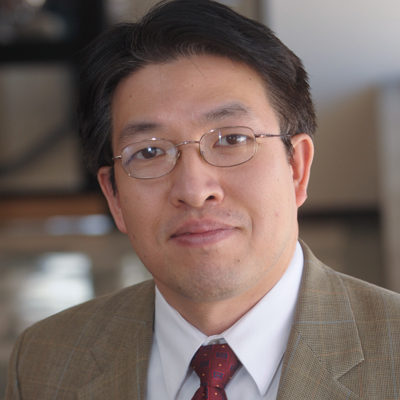Targeting biofilms to fight infection
In the US alone, biofilms are blamed for billions of dollars in losses and more than 90,000 deaths annually. Despite the well-recognized significance of biofilms, biofilm control is still an unmet challenge and many fundamental questions are yet to be answered. Dr. Dacheng Ren, Associate Professor of Biomedical and Chemical Engineering at Syracuse University, develops biotechnology that targets drug resistance and infections caused by biofilms. With the efficacy of antibiotics and disinfectants being intrinsically limited, new approaches, especially those with synergistic effects, are desired. Therefore, Dr. Ren’s research is likely to have a profound impact on the health and wellness of those impacted by drug resistant infections.
Furthermore, biofilms are 1000 times more tolerant to antibiotics and disinfectants compared to their planktonic counterparts. Therefore, deleterious biofilms can cause not only serious problems such as chronic infections in humans, but also problems in persistent fouling and equipment failure within industry. In Dr. Ren’s lab, his multidisciplinary research group hopes to enhance engineering knowledge and address biofilm-associated grand challenges for medical and engineering applications. Their expertise and pioneering work have led to the development of new approaches to sensitize biofilm cells and other drug tolerant bacterial cells to antibiotics, as described in many peer reviewed publications and issued patents.
Current research includes:
-
Anti-biofilm materials/surfaces: Reflect on the ways in which humans choose to live in a certain neighborhood or city; perhaps safety, comfort, or like-minded community members are important. Bacteria operate similarly when choosing an environment to settle in. Using surface engineering, Dr. Ren and his team study the ways in which bacteria attach to surfaces and form biofilms. In so doing, he helps illuminate the role of environmental factors in bacterial biofilm formation and puts efforts to move basic research to applied work. Such applied work will allow Dr. Ren to create surfaces that are inhabitable for harmful bacteria while allowing the good bacteria to “stick” around, and therefore, prevent disease, infection, and other commercial problems.
-
Creating Synergies with Antibiotics: Imagine the weeds that pop up in vegetable gardens. Now picture taking roundup and spraying the whole thing. Short to say, a lot of good will be killed with the bad, leaving you with a measly harvest. When we use antibiotics to treat infection, it is like using roundup. By killing the good bacteria and allowing bad bacteria to build resistance, we continue a cycle of creating an environment for infection that is harder to fight. Dr. Ren’s early studies were some of the first to approach the biofilm problem from a new direction. By creating synergies that allow his team to use other factors to kill harmful bacteria, they can create conditions that work better against infection.

Bio
Dr. Dacheng Ren received his Ph.D. in Chemical Engineering from University of Connecticut in 2003. After finishing postdoctoral training at Cornell University, he joined Syracuse University in 2006. Currently, he is an associate professor in the Department of Biomedical and Chemical Engineering and the Director of Chemical Engineering Graduate Program.
Dr. Ren received an Early Career Translational Research Award in Biomedical Engineering from the Wallace H. Coulter Foundation in 2009 and a NSF CAREER award in 2011. He was named the College Technology Educator of the Year by the Technology Alliance of Central New York in 2010. Dr. Ren is also a recipient of the Faculty Excellence Award from the School of Engineering and Computer Science at Syracuse University. Dr. Ren currently has 44 journal publications with nearly 2000 citations (h-index 23), seven issued/pending patents and research supports from NSF, EPA, Wallace H. Coulter Foundation, Alfred P. Sloan Foundation, and industrial sponsors. Dr. Ren has broad research interests in biotechnology and biofilm control.


